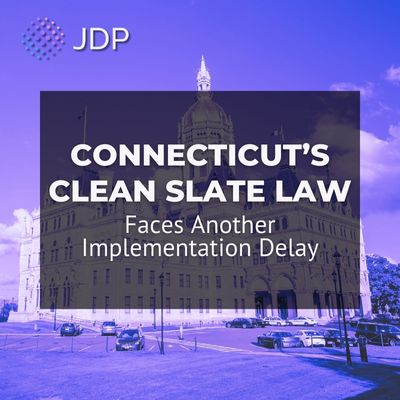April 14, 2024
Representatives from Connecticut Governor Ned Lamont’s administration have announced another delay. This delay affects the state’s Clean Slate law, once again preventing its full implementation from taking effect. As such, those hoping for automatic expungements from the Clean Slate law must wait longer.
This delay follows an announcement from three months ago about the law taking effect in January 2024. Had it begun, it would have expunged the misdemeanors and felonies of over 80,000 individuals. According to the representatives, the state has successfully cleared the records of approximately 13,600 people. This effort amounted to roughly 33,000 charges.
Of these 33,000 charges, approximately 30,000 expunged offenses are for misdemeanors, and the remaining are qualifying low-level felonies.
Under the Clean Slate law, offenses qualifying for automatic erasure include:
- Any unclassified (less than one-year imprisonment) or classified misdemeanor after a seven-year wait from the most recent conviction
- Class D, E, or unclassified (less than five years of imprisonment) felonies and any convictions for operating under the influence after a ten-year wait from the most recent conviction
- Have not received convictions of other crimes during this wait period
The automatic expungement applies to offenses with resulting convictions dated on or after January 1, 2020. Furthermore, individuals must complete all sentence requirements to qualify for the automatic erasure. Such requirements may include prison time, parole and special parole, and/or probation.
The state previously estimated that over 80,000 people would qualify for automatic erasures under state law, which would amount to roughly 178,000 offenses. Initially, it should have cleared by the end of January 2024. The data provided by the state shows how it has fallen short of the goal.
The Department of Emergency Services and Public Protection is one of the agencies responsible for rolling out the Clean Slate law. As such, the Department reported details about the delays. According to the Department of Emergency Services and Public Protection, the reasons for the delay include aging data systems and inaccurate data. The state previously thought it had cleared the long-running technology issues after its $8 million information technology upgrades, which finished in December last year.
The Lamont Administration announced that they expect another 65,000 individuals to see their records expunged in the upcoming weeks. The goal is to expunge all qualifying records from January 1, 2000, within the next 12 months. However, many have criticized the progress due to delays in information about the Clean Slate progress and obstacles.
Disclaimer:
Information provided here is for educational and informational purposes only and should not constitute as legal advice. We recommend you contact your own legal counsel for any questions regarding your specific practices and compliance with applicable laws.
